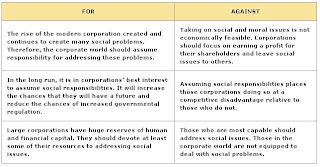Fiscal Cliff and its Impact
What is the “fiscal cliff”?
The fiscal cliff is the phrase that’s
become associated with the combination of $500 billion in spending cuts and tax
increases that are scheduled to automatically start at the start of 2013 in the
United States.
Tax Increases:
·
The Bush-era income-tax rates, which
have been extended once already under President Barack Obama, will expire at
the end of the year for all taxpayers.
·
Also ending is a payroll-tax holiday,
which means a tax increase for workers of as much as two percentage points.
·
In addition, some 26 million additional
people face the alternative minimum tax, or AMT, which would raise their taxes
liability sharply unless Congress acts.
Spending Cuts:
·
Across-the-board cuts in domestic and,
particularly, defense spending would be triggered, including a $55 billion, 9%
cut in the defense budget next year and another $55 billion in cuts to domestic
programs, including a 2% cut to Medicare providers.
What’s the economic impact of going over the cliff?
·
If the said measures are taken, the Congressional
Budget Office has projected the economy would contract 1.3% in the first six
months of 2013, with the economy stabilizing in the second half and eventually
achieving an annual growth rate of 0.5%. Joblessness would rise to 9.2% at the
end of 2013 if Congress didn’t act.
·
But alternately, it has been argues
that the budget cutting that would automatically take place will eventually
boost growth by putting the government on a firmer and more sustainable
financial footing.
·
The counter argument is that going over
the cliff would cause a) investor panic and b) consumer panic and fundamentally
derail what’s already a weak economic recovery.
·
"The US fiscal cliff represents
the single biggest near-term threat to a global economic recovery," the
Fitch ratings agency said recently.
·
The dramatic fiscal tightening implied
by the fiscal cliff could tip the US and possibly the global economy into
recession. At the very least it would be likely to halve the rate of global
growth in 2013.
·
The IMF has warned that even the
uncertainty raised by the fiscal cliff has hit global investment and job
creation.
What is the likely impact on India?
·
Reserve Bank of India cited World Bank
research that predicted only a modest impact on India: Economic growth in South
Asia would fall by 0.2 percentage points while the current account deficit
would improve by 0.1 percentage points of gross domestic product. But the
central bank seems worried enough to add: “…a sharp fiscal contraction may have
a deleterious impact on global growth.”
·
Commodity
prices will ease off and oil prices will stay significantly lower
than in the recent past. In fact, fear of the fiscal cliff has already drove
down commodity prices, starting in October. This will mean that
India’s inflation rate may come down
fast enough for the central bank to cut interest rates more quickly than
anticipated to stimulate growth. Lower
crude oil prices could also ease some of the current pressure on the balance of payments (BoP).
·
Trade: However,
there could be potentially adverse impact on the Indian economy from reduced
trade and investment. India’s merchandise exports now account for nearly 16% of
Gross Domestic Product, while total exports account for approximately 24% of
GDP. With India’s major trading partners in trouble, exports are expected to
take a hit.
·
Capital
flows will also be affected as the global recession that may
result, even if the fiscal cliff is avoided, will lead investors to safe
havens. That means rising demand for gold and dollar-denominated assets and
capital will move away from risky assets (both equity and currency) of emerging
markets, including India.
·
Equities:
If we look at the correlation of returns of EM equities, they are positively
correlated to global equities. Hence any fall in global equity markets due to a
fiscal cliff could cause a fall in all emerging stock markets including India..
·
The fundamentals of the Indian economy
are far weaker than they were at the end of 2008, which means that the ability
of policymakers to intervene effectively is less than before. One indication of
this is the level of foreign exchange reserves with the central bank relative
to monthly imports. Such import cover has nearly halved in the past four years,
from 12 months to six months.
·
At an International Monetary Fund
meeting in Nov 2012, FM P. Chidambaram said that “the issues of fiscal cliff
and the lifting of the debt ceiling in the U.S. also need to be resolved. The
need is to put in place a medium-term fiscal plan while avoiding excessive
fiscal correction in the short run. Should the economic situation in the U.S.
worsen, its impact on emerging market
economies will be much more severe than in the case of the situation in the
euro area.”

Comments
Post a Comment